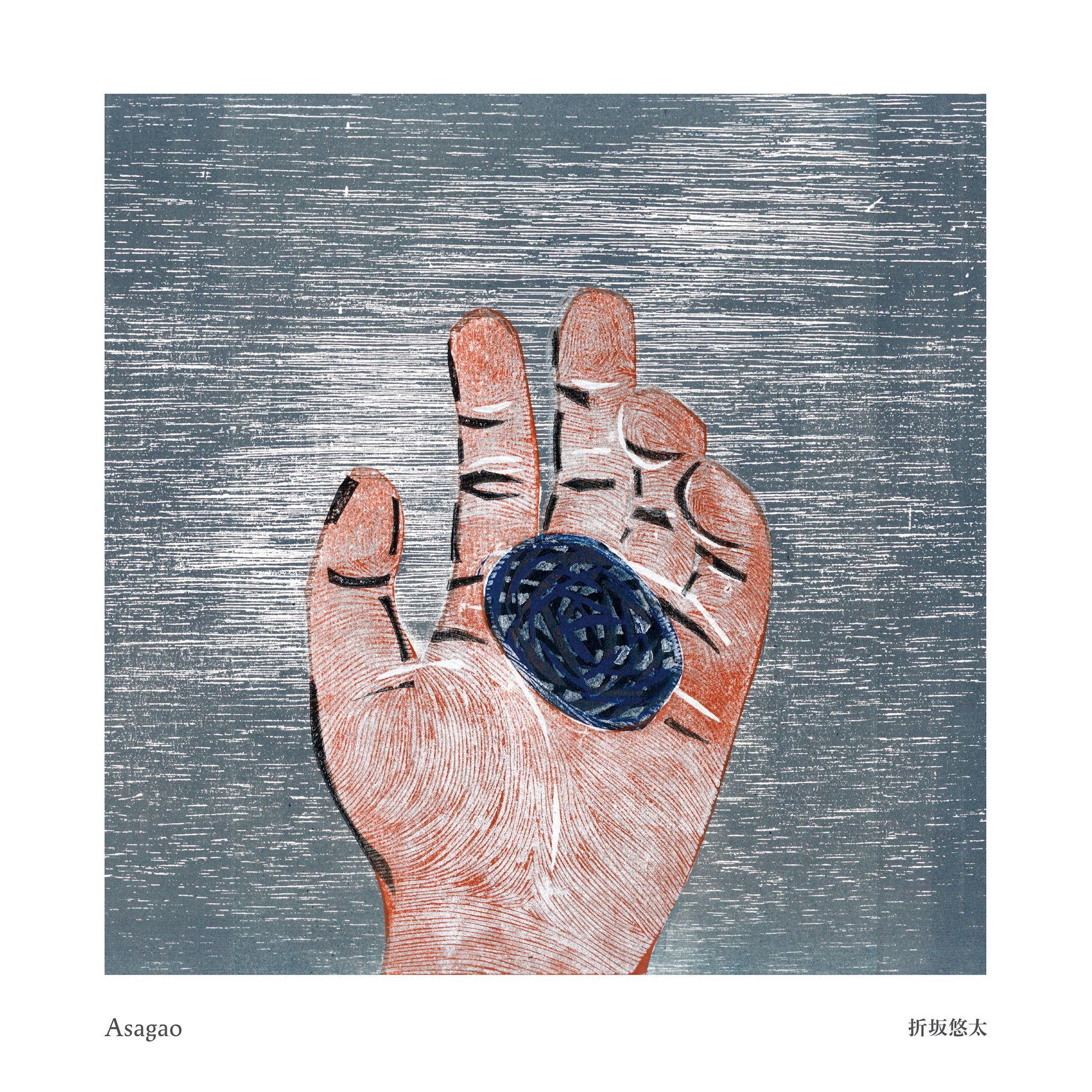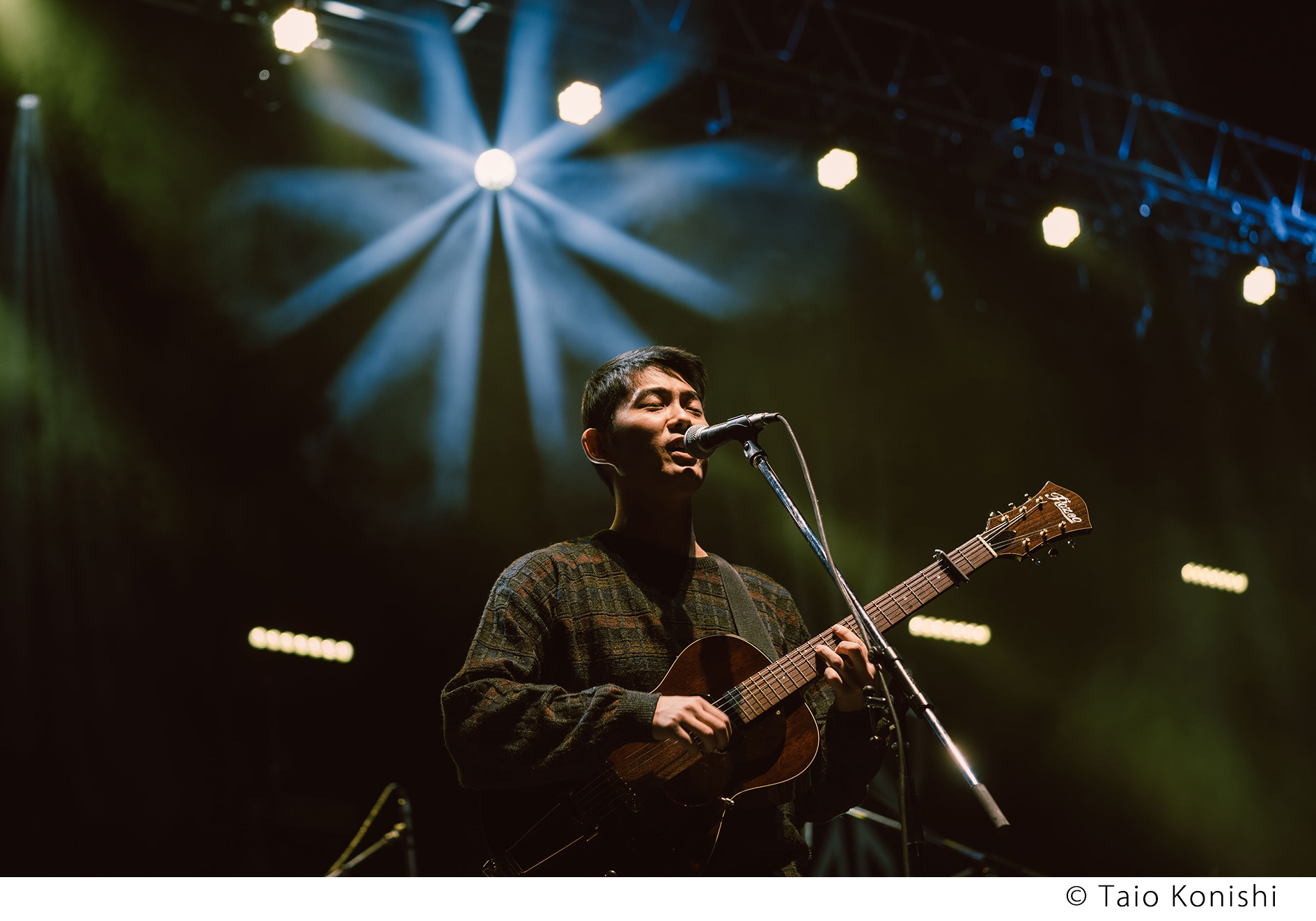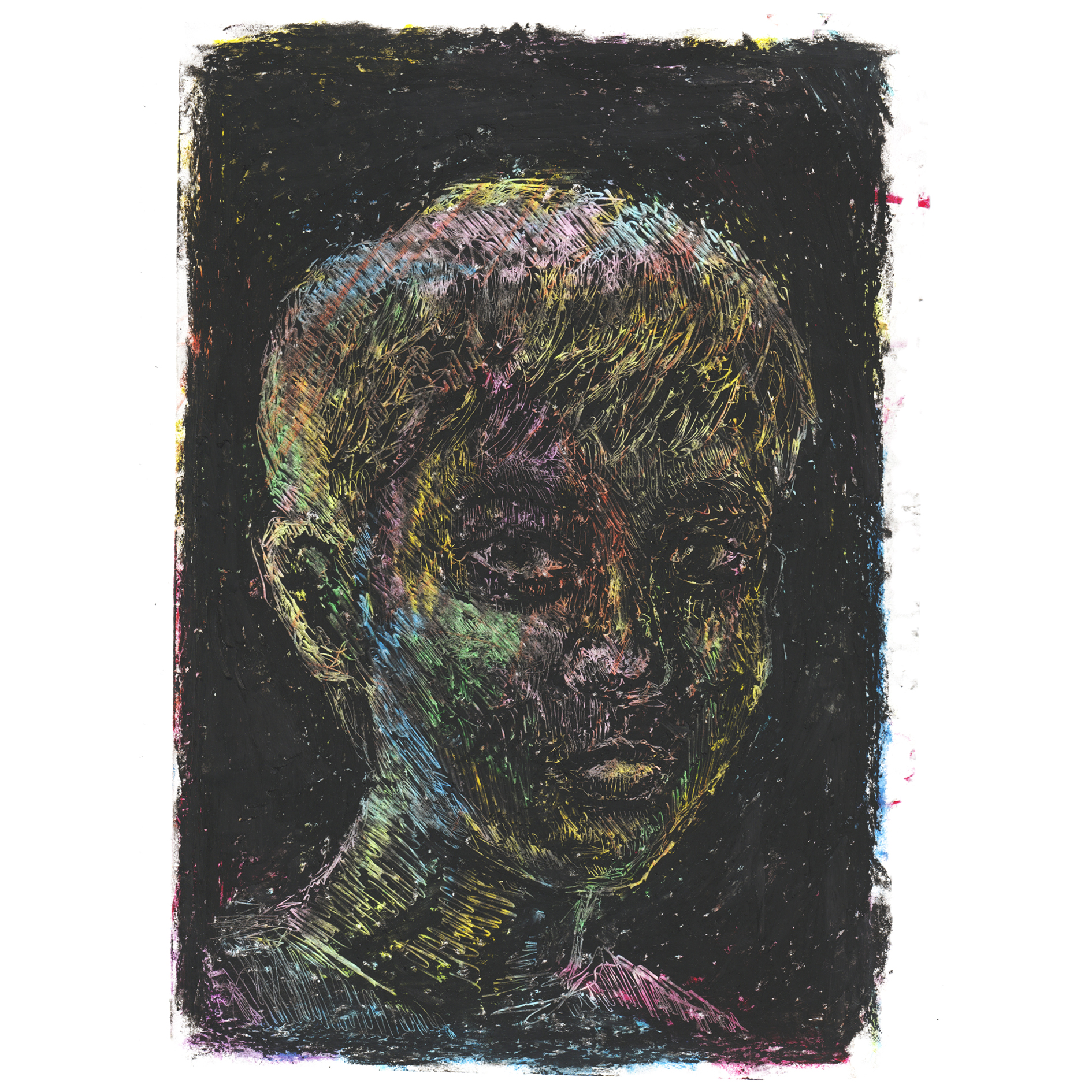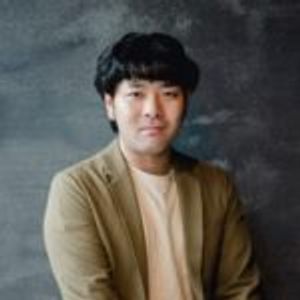In Heisei, Yuta Orisaka’s 2018 album, the artist illustrates the end of an era as someone born in the first year of Heisei (1989). The album has a grand feeling while retaining his personal experience. He released his EP, Asagao, two-and-a-half years after this masterpiece. It has five songs, including “Asagao,” the theme song for the first and second season of the TV series, Kansatsui Asagao, airing every Monday from 9 AM on Fuji TV. It also includes “Tsugumi,” another song used in the second season. While Atsuko Hatano’s string playing characterizes the sound of Asagao from start to end, at the core of the album is Orisaka’s will to offer hope after listening to his fans’ thoughts. Ultimately, Asagao is a conceptual album and the polar opposite of Heisei. We asked him about how he made the album and his idea of hope in today’s world.
“I didn’t want it to end as a soundtrack; I wanted to make something in my own way”
ーーYou released “Asagao” in 2019 as the theme song for the TV drama Kansatsui Asagao. Could you first talk about how you came to release your EP?
Yuta Orisaka: I initially released the single, “Asagao,” digitally only, but I was like, “I should release a CD.” That’s how it started. The people that watch the show, my relatives, and my hometown friends, would ask me if there was a CD. Most people don’t listen to CDs now, but we can’t underestimate their power. Also, I made “Tsugumi” for the show and then made songs that would tie those two songs together, like antitheses, and it ended up being a five-song album.
ーーWhat was your goal with making an EP with “Asagao” and “Tsugumi”?
Orisaka: Unlike my usual songwriting, I had to make “Asagao” and “Tsugumi” in accordance with the TV drama. It was hard. The scale and standards differed from the music I had been making until then. So, I was trying this and that to best express myself. I have my thoughts about each song, but I feel like they’re different. It’s like there’s a disconnect between these songs and my usual music. That’s why I didn’t want it to end as a soundtrack; I wanted to make something in my own way. Instead of releasing the two songs as singles, I also wanted to put out songs that would bridge them together.
ーーI see. Was it difficult writing “Tsugumi,” as it was your second song for the TV series? I feel like the title of another song on the EP, “Hari no Ana” (eye of a needle), symbolizes the difficulty you had.
Orisaka: You’re exactly right (laughs). I thought of the phrase, Hari no Ana, when I was struggling to create “Tsugumi.” I had a challenging time with “Asagao” too, but I had to make “Tsugumi” at the same level as “Asagao,” so I thought too deeply about it. It took me about half a year to complete it.
ーーWhat theme did you have when you made “Tsugumi” after going through harsh times?
Orisaka: “Asagao” is an optimistic and hopeful song, but I feel like there’s a sadness to it too. The theme was the feelings you have towards those who have passed away or wondering how they feel. When I was writing “Tsugumi,” there was news about suicides, and we had a stay-at-home period because of Covid-19. I felt a difference in the air, and I thought I couldn’t call myself an artist if I didn’t take that situation into account. The words that came to mind were “Dawn breaks,” which is a concise and, in a sense, cliché phrase.
ーー“Dawn breaks” seems like an antithesis to hope, which is a word that represents “Asagao.” Could you expand on why you chose these words a bit more?
Orisaka: The hopefulness I sing of in “Asagao” is something I’m emitting myself, but “Dawn breaks” is just a part of everyday life. You can interpret it as hope, but some people are afraid of welcoming the morning. As a singer, I was thinking about what I could say to someone on the brink of dying. I couldn’t light-heartedly cheer them on or give them hope. The lyrics towards the end, “Why does dawn break?” can have a hidden meaning, I think. I tried to be closer to the listener by portraying a scene where I’m watching the sunrise with them.
ーーThis song isn’t in Asagao, but it seems like there’s a similarity between what you said and “Haru,” which you released last year. In this song, you talk about the coming of spring as though it were a fact of life. I feel like your songs have this struggle to make reality a positive thing.
Orisaka: I want to sing optimistic songs. But I think there’s a prerequisite for that. You first have to establish the setting: “This is where we’re all at right now.” Otherwise, the songs won’t come to life. On the surface, “Asagao” and “Tsugumi” are very optimistic, so one goal of the EP is to provide the setting and connotations that tell the listener what sort of situation the songs are set in.
ーーYou sing about that on “Hari no Ana.”
Orisaka: Yes. Some of the lyrics go like, “The eye of the storm” and “A stormy day.” I sometimes don’t know if I could go on living the next day. Coronavirus exposed the fact that everyone has their pains. That’s what I sang about. The lyrics talk about suffering, but I wanted to bring it to a positive place, so the melody embodies excitement.
ーーYou express the pain of living here: “Living right now/is like an eye of a needle.” Those words made me feel seen because it was like you understood how things are tough.
Orisaka: In the song, “Torch,” which I put out last year, I say, “It’s only me/who feels like this/in this city.” This song’s feel is similar.
ーー“Asadoya Yunta” is a Yaeyama folk song that you’ve performed at your shows. Why did you record it at this timing?
Orisaka: I’ve always sung it live, but since the birth of “Asagao,” I began to perform it more. The lyrics, “Matahaari nu tsindara kanu shama yo” mean something like, “We shall meet again, my beauty.” I felt like that connected with the theme of “Asagao,” so that’s why I included this song.
ーーWhy have you always sung “Asadoya Yunta” in the first place?
Orisaka: It’s strange, but it feels good to perform it (laughs). I usually need to hype myself up when I sing, but when I sing this, it feels like I’m taking a bath; I don’t know why. I keep on singing this because it makes me feel relaxed.
ーーI got the impression that the instrumental track, “Nokosareta mono no Waltz,” depicted the calm after the storm which contrasts “Hari no Ana.”
Orisaka: I was initially planning to have four songs, but they all had a dramatic intonation. So, I wanted to make a less dramatic track people could play in the background and made this song right before I started recording. The TV series is about those who survived the mother’s passing, and so I had that in mind too.
Hope, the feeling that connects the past to the present
ーーYou made this EP to create something of your own out of the songs you wrote for a TV series. How do you think this experience will influence your future career?
Orisaka: About that… I honestly haven’t processed it yet. I finally feel like “Asagao” and “Tsugumi” are songs I can call my own. There’s a sense of satisfaction that comes with knowing I wrote these songs because I worked with a TV show, but I had a rough time. When I was working on the demo, I had moments where I thought I might no longer believe in my music. It was bad (laughs). I want to use this experience as an artist, but I’ll only know how that will come to life in the future.
ーーI’m sure you had a challenging time, but perhaps your experience opened new doors for you.
Orisaka: Yes. When I was making “Asagao,” I would go back and forth with the people behind the series, and the lyrics changed many times. However, I felt like it was pointless unless the new lyrics came from me. I narrowed down my thoughts and feelings with no pretense, and as a result, the word I arrived at was hope. I didn’t expect to sing about this subject.
ーーIn an earlier interview, you talked about how you’ve perhaps always had a hope-like feeling since your debut album, Akebono (2014). Does it feel like you’ve always had that deep down but could finally sing about it in Asagao?
Orisaka: When I first started making music, I wanted to sing songs that my grandmother would enjoy listening to. Meaning, I wanted to share music with people who rarely listen to music every day or those far away from the arts. Music is the only thing that can go beyond different ideologies, tastes, and cultures and make people relate. I believe music says this: “I don’t know what kind of person you are, but I pray for your happiness.” I’m glad I can sing about hope to the people on the other side of the TV screen watching the show. It goes back to my wish to sing songs that my grandmother would like at the start of my career.
A real, raw performance
ーーThere’s another evolution in your artistry. When you played at FESTIVAL de FRUE last year, you said, “My way of thinking has changed a bit since before the stay-at-home order, and I’ve made a conscious effort to stop neatly packaging my music for live shows.” What sort of change of heart did you undergo with playing live?
Orisaka: When I pondered on my strengths in live performances, I realized it was more worthwhile to focus on the rawness and unpredictability of live shows. Clubhouse and Instagram live aren’t about showing completed works; they’re about finding meaning in the unpredictability. Because of the stay-at-home order, I couldn’t meet people, and now I have fewer experiences that make me go, “I don’t remember what we spoke about, but it was fun meeting this person.” I feel like talking about unspecified, random things with people or moments where you hesitate to say things are important, too.
ーーYou go live on Instagram and post multiple tracks onto SoundCloud these days.
Orisaka: Promoting my music is one aim, but I want people to see me living in the now. That’s why I don’t want to neatly package my music when I play live. I want it to be a documentation of me living in the present.
ーーIs that affected by your release of Akatsuki no Watashi, which is a compilation of your live performances?
Orisaka: Maybe. More live shows went well. But I played some songs through trial and error, and some when I felt intensely emotional. I selected the songs based on how they best represented the vibe of my performances. Perhaps I don’t necessarily want to listen to the songs I had performed especially well on.
ーーAs your music-making and creative output evolve, have you found your purpose for your next album?
Orisaka: I vaguely have an idea. But it’s still at the “I think I’m going to break down each song I’ve made and switch them up again” stage. I started an instrumental ensemble with musicians in Kyoto (yatchi, senoo ricky, Azumi Hatano, Kota Yamauchi), and recently when I’m not there, quaeru’s Youjin Wakamatsu plays instead of me. As an audience, it’s great, and I’m super into this band at the moment. I still haven’t made an album with them yet, so I would like to highlight their talents while applying myself when we do.
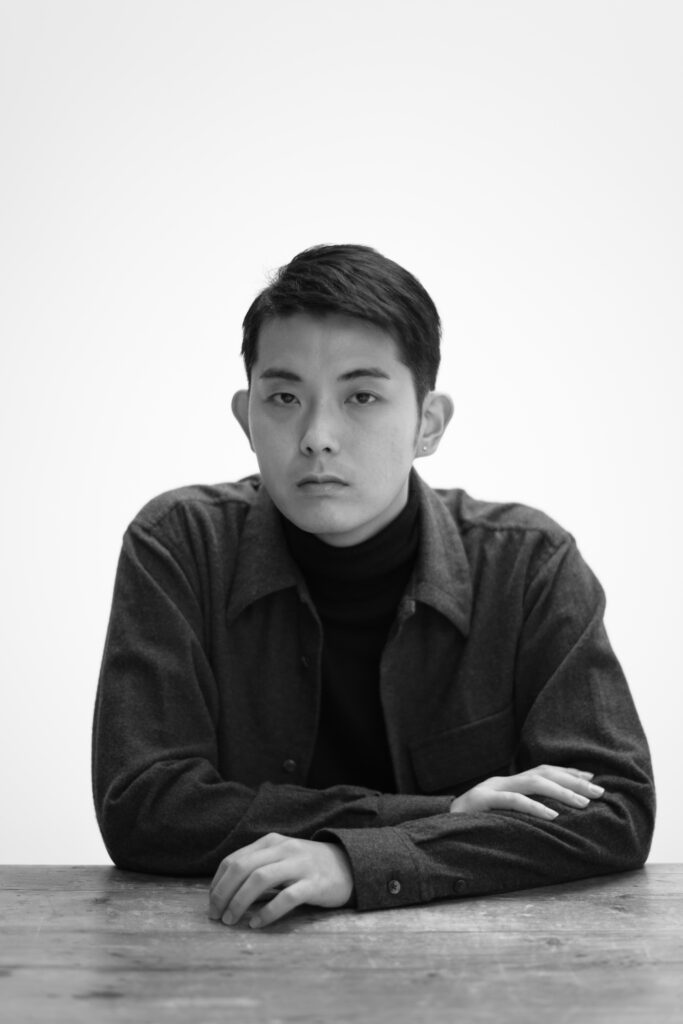
Yuta Orisaka is a singer-songwriter born in the first year of Heisei in Tottori prefecture. As a child, he spent his years in places like Russia and Iran and moved to Chiba when he returned to Japan. He started his career with a guitar and his voice in 2013. His second album, Heisei, released in October 2018, won the best award for “CD Shop Taisho.” It received critical acclaim. In July 2019, he released “Asagao,” the theme song for the Fuji TV drama Kansatsui Asagao, airing every Monday from 9 AM. He has continued to provide the theme song in their second season, which started on November 2nd, 2020. Orisaka also worked on the Nakuko wa Ineega soundtrack, released on November 20th, 2020.
Translation Lena Grace Suda

